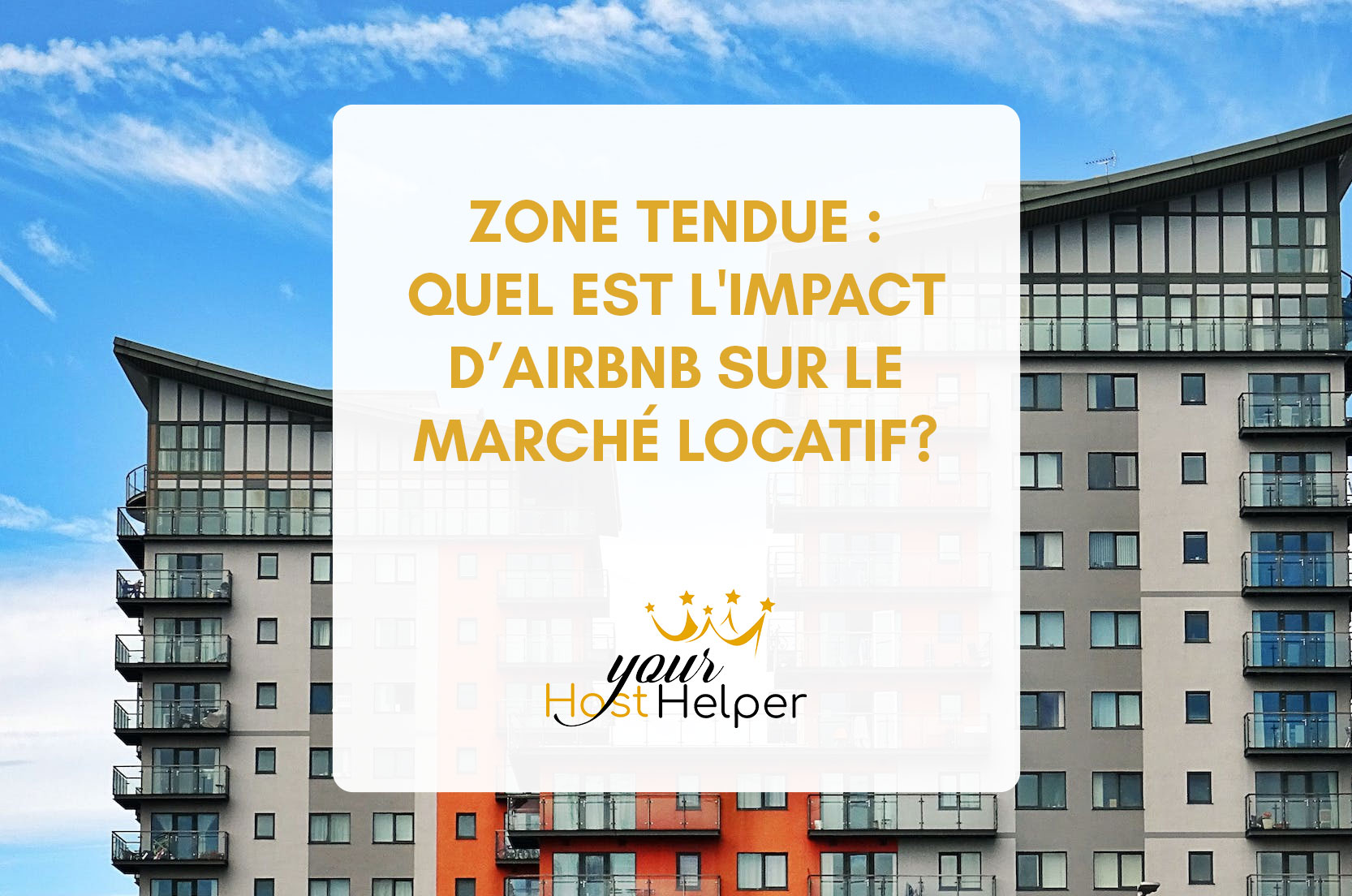Tight areas refer to geographic areas where the demand for housing is particularly high compared to the available supply. These areas are often characterized by tight real estate markets, where it can be difficult to find housing due to high demand. Financially, the tense area is also characterized by very high transaction costs and rents, which are also often prohibitive for tenants.
More specifically in the context of rental, whether long-term or seasonal, rents are often higher. A snowball effect is then created: high rents impact the resale prices of properties without their quality improving. This results in a real difficulty for the territories to attract new inhabitants, these newcomers sometimes not being able to assume such acquisition costs or such high rents. This combines with the difficulties currently observed in accessing credit, preventing many potential buyers from realizing their real estate projects, whether residential or rental. OUR concierge agency in Bordeaux invites you to reflect on the impact of Airbnb on tense areas, without however wanting to focus exclusively on Bordeaux.
When the tense zone becomes a restricted zone:
The notion of tense areas is often associated with rental regulations, in particular the Alur law (Access to Housing and Renovated Urban Planning) of 2014, which introduced measures aimed at regulating rents in certain areas where demand for housing exceeds the supply. These measures, also known as rent control, aim to combat abuses linked to rent prices and guarantee fairer access to housing.
Stressed areas are determined locally and may vary from city to city. Urban areas where demand for housing is traditionally high, such as Paris, Lyon, Marseille, Bordeaux and other large cities, are often considered stress areas. In the case of Bordeaux, our Bordeaux concierge agency can only note the current difficulty encountered by the real estate market, whether it concerns purchase/sale projects or LLD rentals.
Landlords and real estate agencies operating in these stressed areas may be subject to specific regulations regarding rents, lease agreements and other aspects of property management. It is important for landlords and tenants to familiarize themselves with the specific rules of their respective geographic area to ensure compliance with current legislation.
It should be noted that policies relating to stressed areas may evolve over time, and it is recommended to refer to the most recent legislative texts and local authorities for up-to-date information on real estate regulation in these areas. Bordeaux has already legislated on the issue for several years and our concierge service, like all stakeholders, has been responsible for spreading the word and supporting owners in their compliance with the regulations and their changes over time.
The impact of Airbnb seasonal rental on tense areas:
Seasonal rental can locally disrupt the real estate market in that it offers, in the most tourist destinations, higher rental yields. As a result, many homes are being removed from the (more stable) long-term rental market and integrated into the more volatile short-term rental market. This means less residential housing and rents that skyrocket during the high season.
This is so much so that towns or neighborhoods can find themselves transformed. When tourist activity takes precedence over the usual model of these cities, the transformations are numerous and directly impact local culture, the economy, the financial sources of communities, employment, transport, etc. The quality of life of permanent residents is impacted and therefore seasonal rental creates a profound imbalance in certain areas.
The main problem identified by the authorities is the ability of seasonal rentals to drive up the price of real estate. More profitability naturally leads to higher resale prices. In the context of difficulties in accessing real estate loans that we are experiencing, the situation quickly becomes problematic. Combined with a lower number of long-term rentals, tense areas then face several major challenges.
This is why the regulations often go beyond the regulation of rents but also directly address furnished tourist rentals: compulsory registration with change of destination of the accommodation, principle of compensation, limitation of days rented per year, etc. These are all directives put in place to try to curb the Airbnb rental market in these territories.





